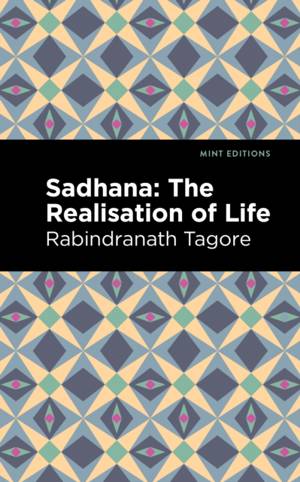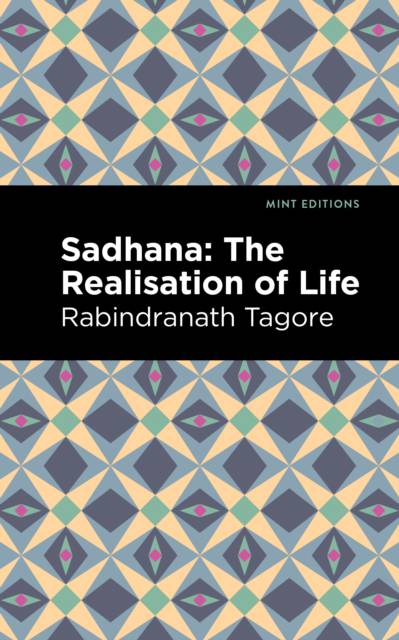
- Retrait gratuit dans votre magasin Club
- 7.000.000 titres dans notre catalogue
- Payer en toute sécurité
- Toujours un magasin près de chez vous
- Retrait gratuit dans votre magasin Club
- 7.000.000 titres dans notre catalogue
- Payer en toute sécurité
- Toujours un magasin près de chez vous
Description
Sadhana: The Realisation of Life (1916) is a collection of essays by Rabindranath Tagore. Published after Tagore received the 1913 Nobel Prize in Literature, Sadhana: The Realisation of Life contains the author's thoughts on selfhood, the universe, morality, and beauty. Inspired by the Upanishads, the sacred foundational texts of Hinduism, Tagore's collection bridges the gap between East and West, ancient and modern, in its search for universal truth. "The west seems to take a pride in thinking that it is subduing nature [...] This sentiment is the product of the city-wall habit and training of mind. For in the city life man naturally directs the concentrated light of his mental vision upon his own life and works, and this creates an artificial dissociation between himself and the Universal Nature within whose bosom he lies." In this collection of essays, Tagore is at his philosophical, poetic best, reflecting earnestly and with ease on matters public and private. Grounded in the teachings of the Upanishads, Sadhana: The Realisation of Life is a text engaged with the role of tradition in an increasingly alienated and individualistic modern world. With a beautifully designed cover and professionally typeset manuscript, this edition of Rabindranath Tagore's Sadhana: The Realisation of Life is a classic of Indian literature reimagined for modern readers.
Spécifications
Parties prenantes
- Auteur(s) :
- Editeur:
Contenu
- Nombre de pages :
- 92
- Langue:
- Anglais
- Collection :
Caractéristiques
- EAN:
- 9781513215860
- Date de parution :
- 12-10-21
- Format:
- Livre broché
- Format numérique:
- Trade paperback (VS)
- Dimensions :
- 127 mm x 203 mm
- Poids :
- 108 g







